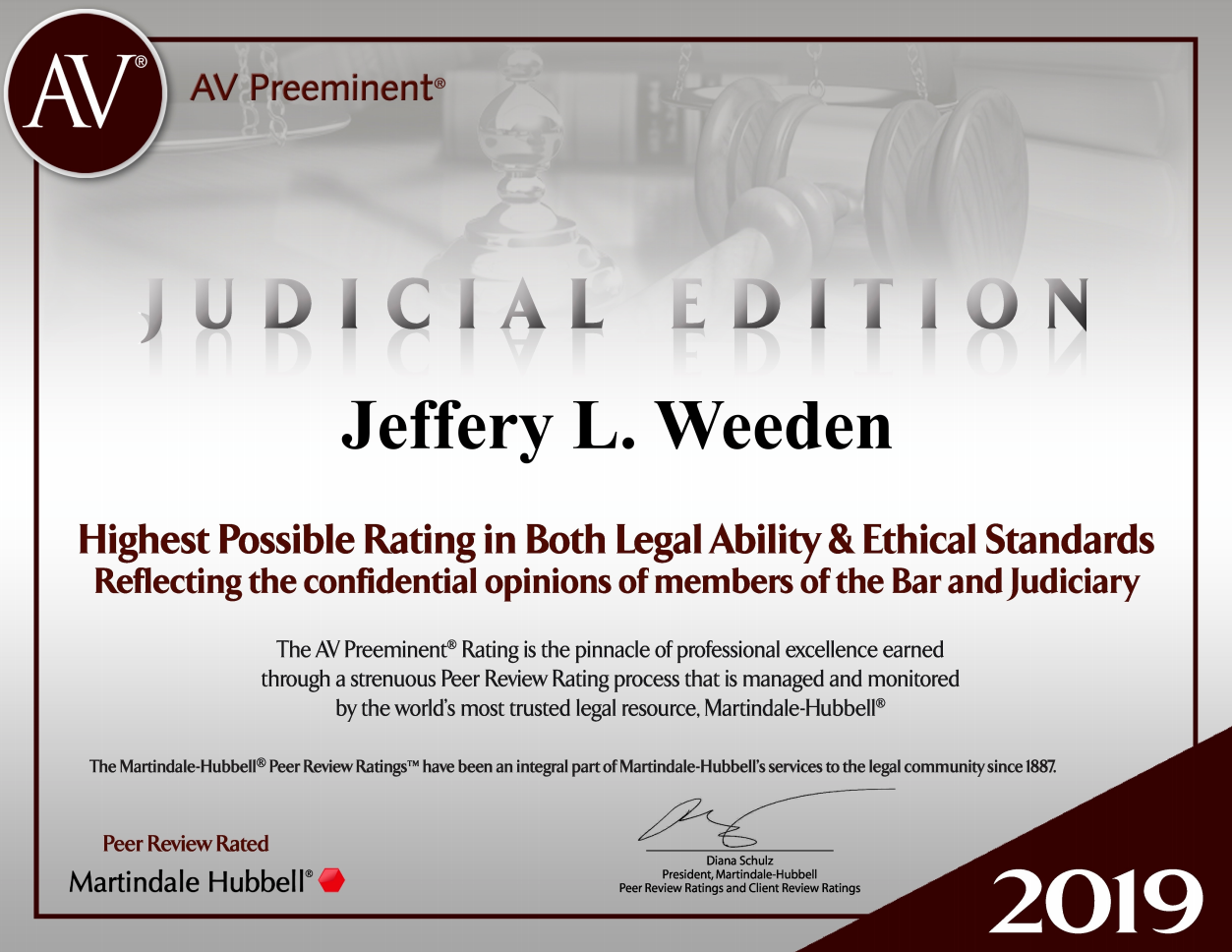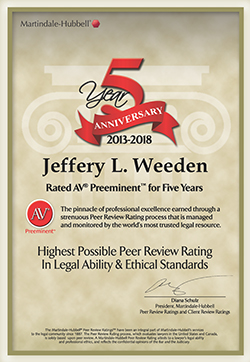Aggressive Criminal Defense Lawyer for Trespassing Charges in Denver, CO
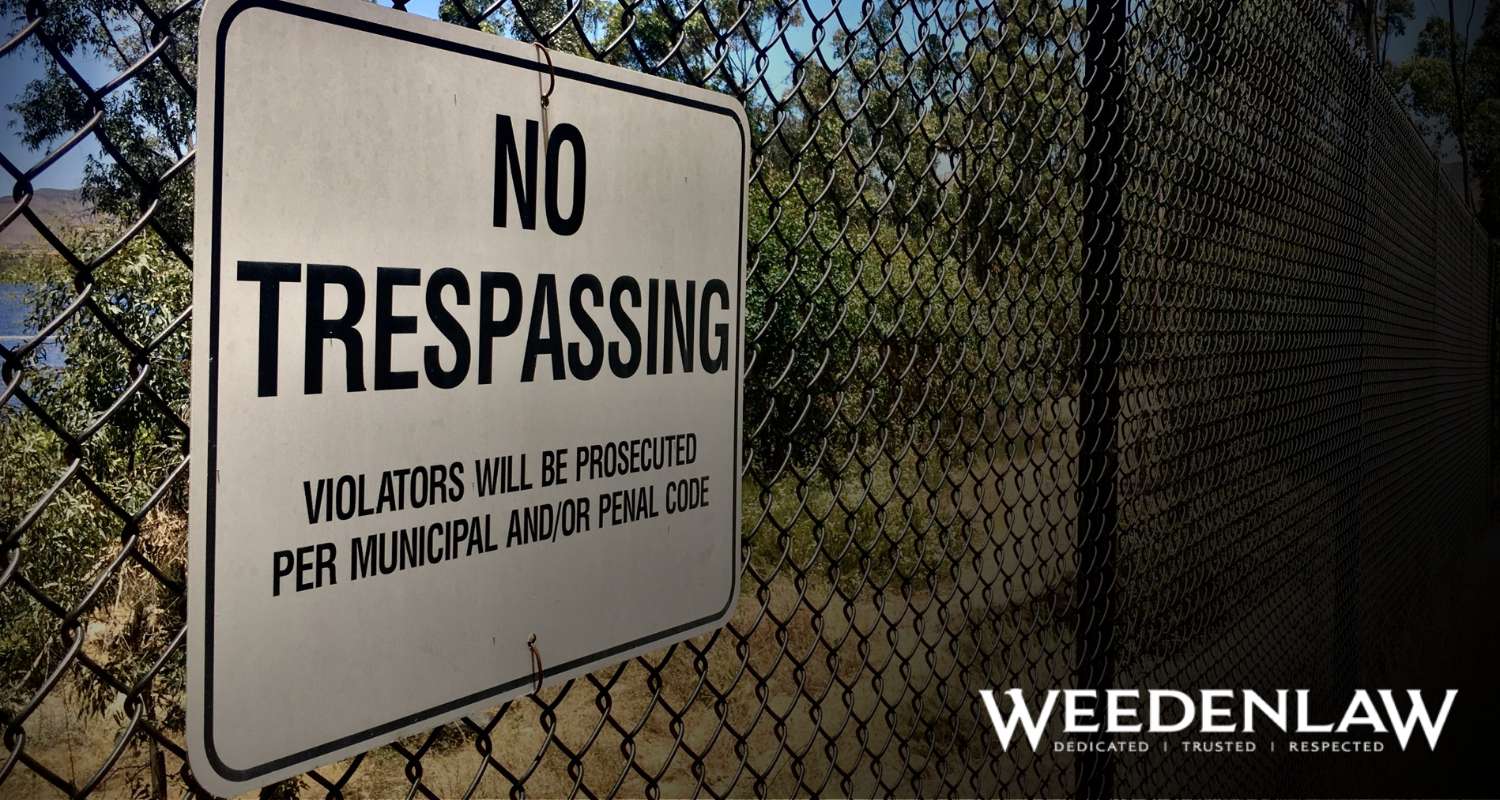
Being charged with criminal trespass in Colorado can lead to serious legal consequences, but having a skilled defense attorney can make all the difference when it comes to fighting these consequences. As an experienced Denver criminal trespass lawyer, Jeff Weeden understands the impact these charges can have on your life and will work hard to defend your rights and future.
Whether you’ve been accused of unlawfully entering private property or remaining somewhere without permission, we’re ready to fight the charges against you. His experience defending clients across Douglas County, Denver County, Arapahoe County, Jefferson County, Adams County, and beyond makes him a trusted advocate for individuals facing trespassing charges in the Denver and Central Colorado areas.
At WeedenLaw, we make sure every case receives personalized attention and a strategic defense tailored to your circumstances. Criminal defense lawyer Jeff Weeden and his team will carefully assess the details of your case and develop a plan to pursue the best possible outcome. Call our law office at (720) 307-4330 or email jlweeden@weedenlaw.com to schedule a free consultation and get started on your defense today.
What Constitutes Trespassing in Colorado?
In Colorado, trespassing (formally known as criminal trespass) occurs when someone unlawfully enters or remains on another person’s property without permission. Several situations can lead to criminal trespass charges. For example, you could be charged if you enter private property, such as someone’s home or yard, without the owner’s consent. Trespassing can also occur if you remain on or around a business property, hotel, or apartment building after being asked to leave.
It’s important to note that criminal trespass charges can arise even when there is no intent to commit harm. Unfortunately, misunderstandings – such as believing you had permission to be on the property or a lack of awareness of boundary lines – do not always prevent criminal charges. Colorado law may still hold you accountable, regardless of intent. This is why having an experienced Denver trespassing defense attorney like Jeff Weeden is crucial, as he can help clarify the circumstances surrounding the criminal charges and fight for your rights.
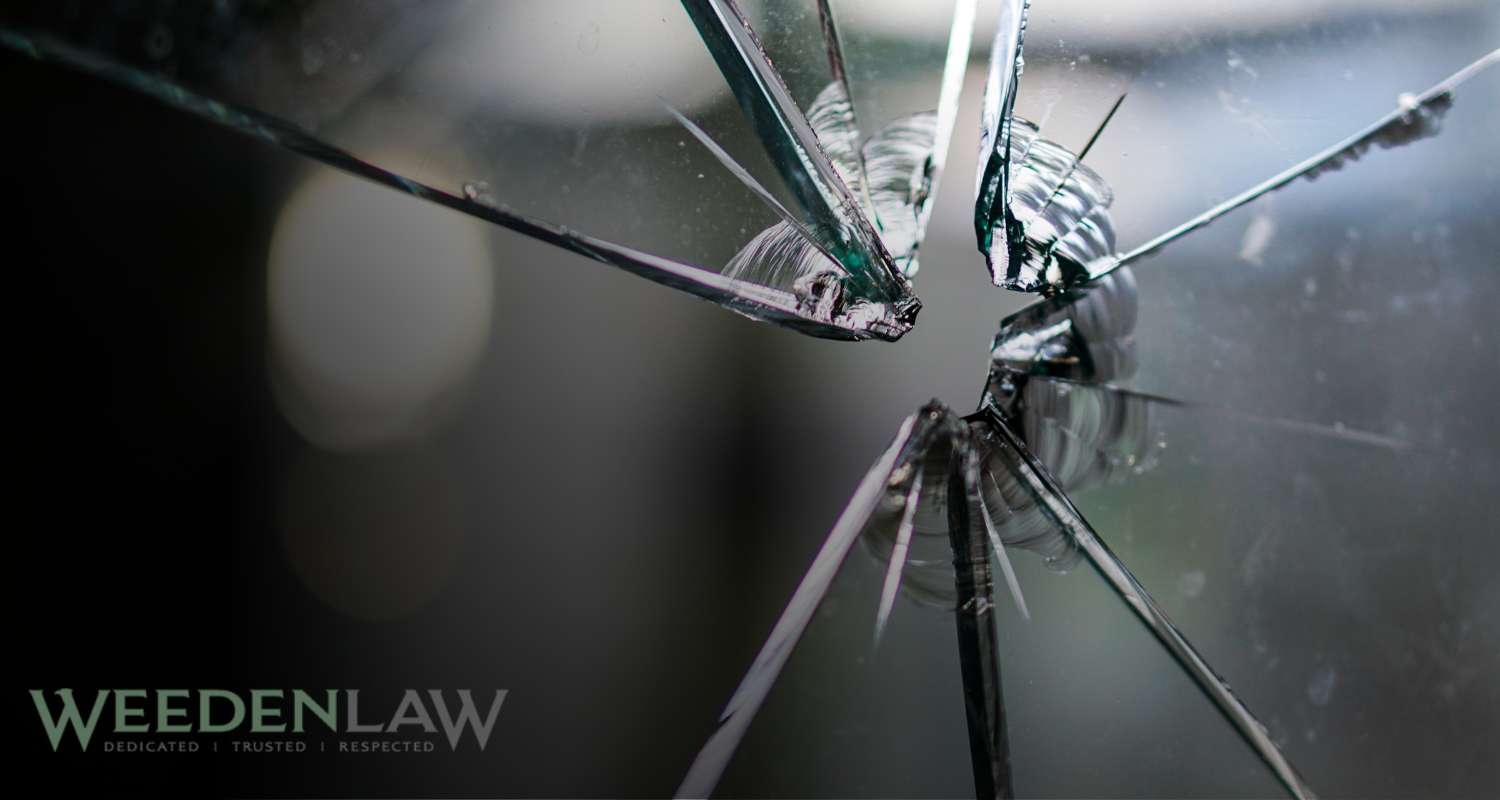
Is Trespassing a Crime?
Trespassing is considered a crime and can range from a minor offense to a more serious charge, depending on the circumstances. Colorado criminal law recognizes three degrees of criminal trespass, each with varying levels of severity.
Depending on the degree, criminal trespassing may generally result in a petty offense or misdemeanor charges. However, certain circumstances can escalate the trespassing charges to felonies.
Even though criminal trespassing might seem like a minor offense, it’s still a criminal act with potential penalties, including fines, jail time, and a permanent mark on your criminal record. That’s why taking trespassing charges seriously is important, no matter the degree.
Colorado Trespassing Laws
Trespassing charges are usually considered misdemeanors in Colorado, but there are circumstances where the criminal charges are escalated to felonies. Here is a brief overview of the different degrees of criminal trespass under Colorado law:
- First-degree criminal trespass (CRS 18-4-502) occurs when someone knowingly and unlawfully enters or remains in someone’s dwelling or a motor vehicle with intent to commit a crime.
- Second-degree criminal trespass (CRS 18-4-503) occurs when an individual unlawfully enters or stays on enclosed property, such as a fenced yard, or unlawfully enters a building or motor vehicle belonging to someone else.
- Third-degree criminal trespass (CRS 18-4-504) applies to entering or remaining on someone else’s property or land without permission.
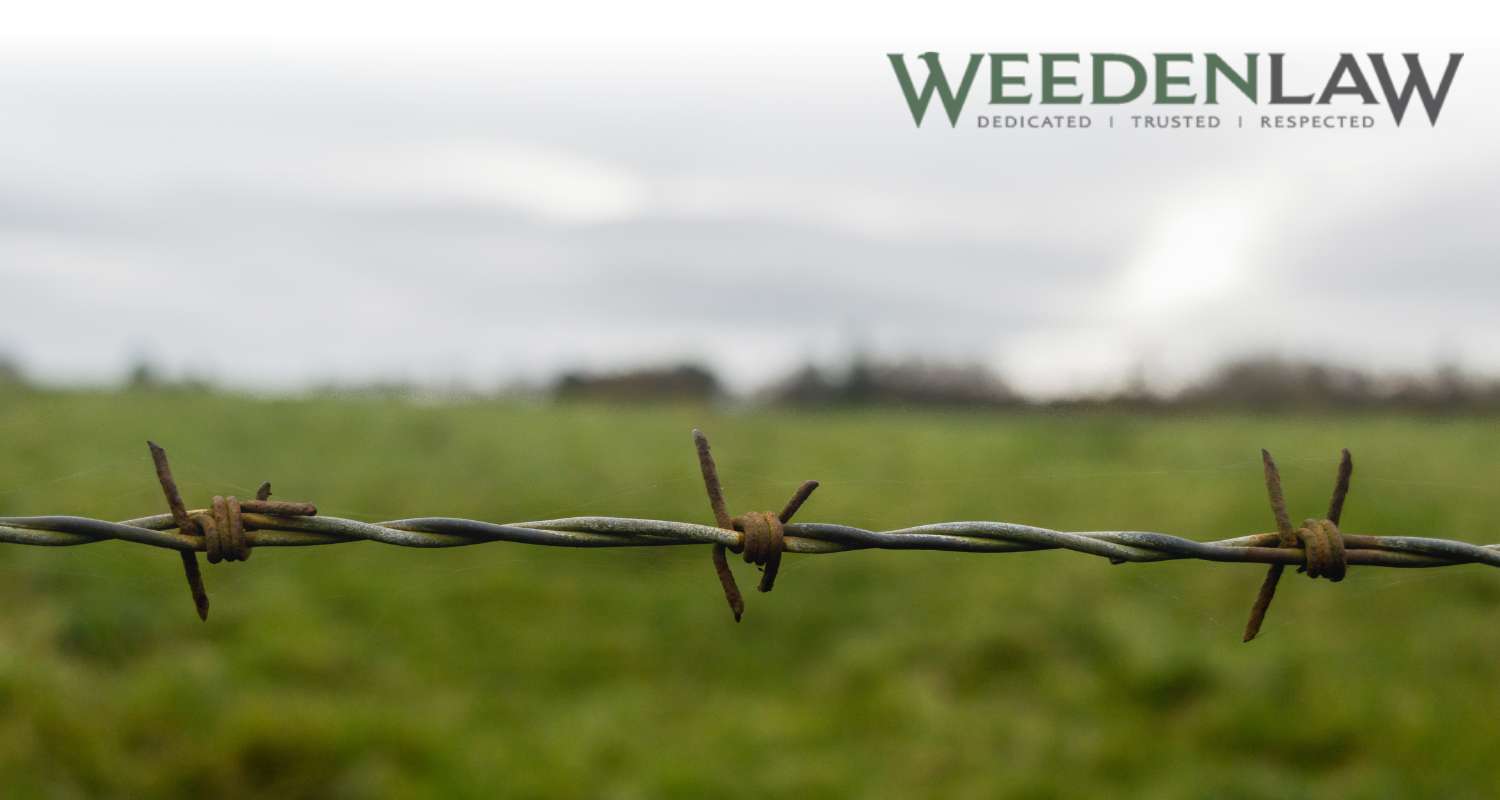
Is Trespassing a Felony?
Trespassing can be a felony in Colorado under certain circumstances. For example, first-degree criminal trespass, which involves knowingly and unlawfully entering someone’s home or motor vehicle, is a felony when the property is inhabited or occupied. Second-degree criminal trespass can also be elevated to a felony if it occurs on agricultural land that is fenced off or clearly marked as private.
First-Degree Criminal Trespass
First-degree criminal trespass in Colorado occurs when an individual knowingly and unlawfully enters or remains in another person’s dwelling, such as a home, or unlawfully enters a motor vehicle with the intent to commit a crime. In most cases, first-degree criminal trespass is a Class 1 misdemeanor, but when the property is occupied or inhabited, it can be elevated to a Class 6 felony charge.
Second-Degree Criminal Trespass
According to Colorado law, a person commits second-degree criminal trespassing when they knowingly and unlawfully:
- Enters or remains on enclosed or fenced property;
- Enters or remains in the common areas of a hotel, condo, or apartment building;
- Enters or remains in another person’s motor vehicle.
Depending on the circumstances, second-degree criminal trespass can be charged as either a petty offense or a Class 2 misdemeanor. However, if the person trespassed on agricultural land with the intent to commit a felony, it escalates to a Class 5 felony.
Third-Degree Criminal Trespass
Third-degree criminal trespassing is the least severe form of trespass in Colorado and involves situations where someone knowingly and unlawfully enters or remains on another person’s premises without permission.
Third-degree trespass is often classified as a petty offense, which carries lighter penalties, such as fines or community service. However, if the premises are considered agricultural land and the trespasser had intent to commit a felony, it may be increased to a Class 5 or 6 felony, depending on whether the land had a fence securing the perimeter or not.
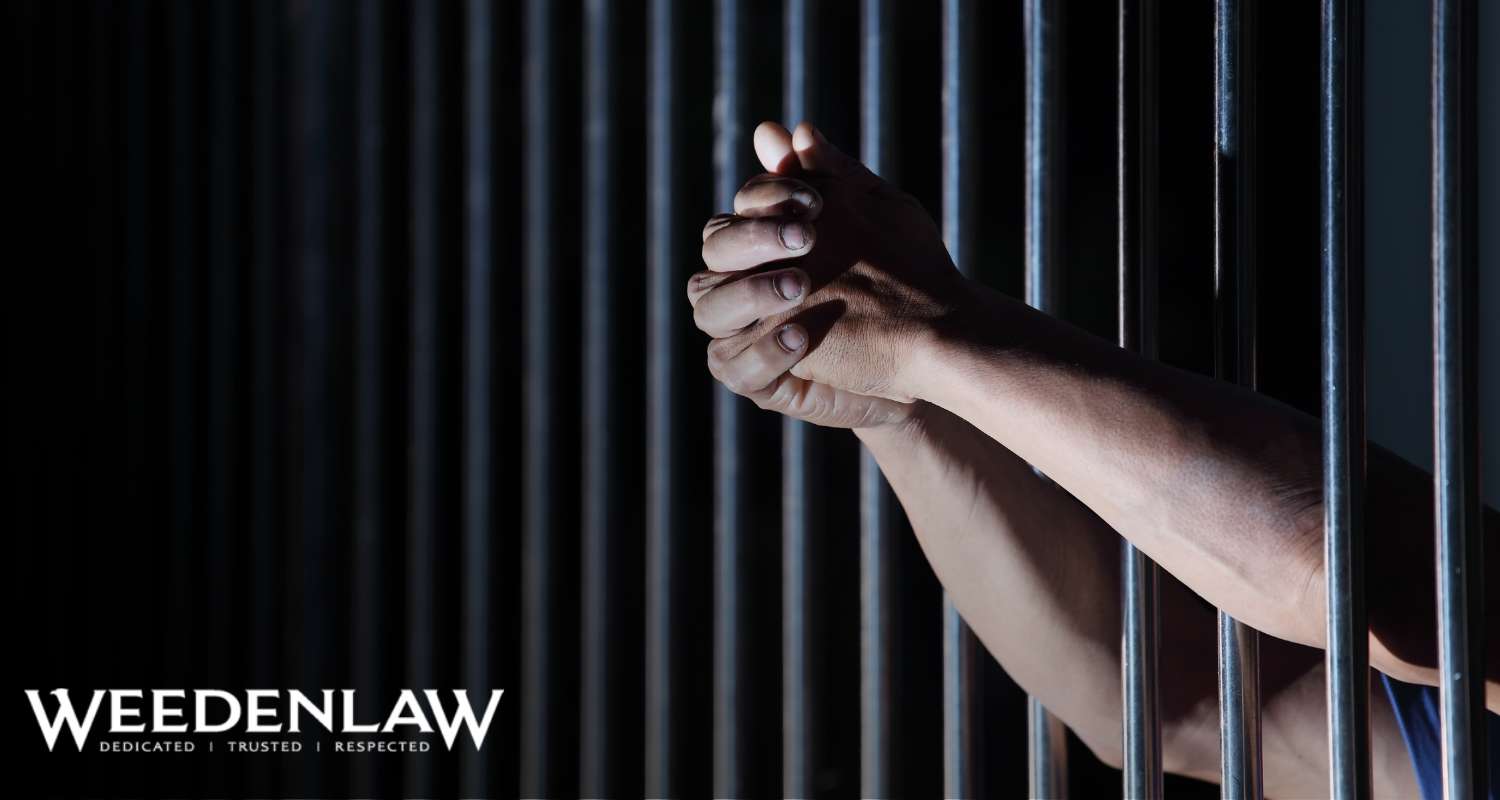
What is the Punishment for Trespassing in Colorado?
The punishment for criminal trespassing in Colorado varies depending on the degree of the offense and the circumstances surrounding the incident.
- First Degree Criminal Trespass
- Usually charged as a Class 1 misdemeanor, which carries a maximum sentence of 364 days in jail and/or a $1,000 fine.
- If the property is inhabited, the charges will be upgraded to a Class 6 felony. Class 6 felony trespassing charges can result in up to 18 months in prison, one year of mandatory parole, and/or fines costing between $1,000 and $100,000.
- Second Degree Criminal Trespass
- Generally charged as a petty offense, resulting in up to 10 days in jail and/or $300 in fines.
- If the trespassing occurred in a motor vehicle belonging to someone else, the charges are considered a Class 2 misdemeanor, resulting in up to 120 days in jail and/or $750 in fines.
- If the trespassing occurred on agricultural land with the intent to commit a felony, the crime is considered a Class 5 felony. These felony charges result in up to three years in prison and/or fines between $1,000 and $100,000.
- Third Degree Criminal Trespass:
- Usually considered a petty offense, but when the property involves agricultural land, the charges are considered felony trespassing.
- If an offender is caught trespassing on agricultural land with the intent to commit a crime, the crime is considered a Class 5 felony.
- However, if the agricultural land does not have a fence around the perimeter, the charges are a Class 6 felony.
Aggravating factors, such as prior convictions, the involvement of other crimes, or the type of property trespassed upon, can lead to harsher penalties. For example, if someone enters a vehicle with the intent to commit theft or damage, or if they have a history of criminal trespass convictions, the charges and penalties can be elevated, resulting in longer jail sentences, higher fines, or extended probation.
In addition to immediate penalties, a criminal trespass conviction can have long-term consequences. A conviction results in a permanent criminal record, which can affect future employment, housing opportunities, and even educational prospects.
These long-lasting effects make it essential to seek legal counsel from an experienced Denver property crimes lawyer like Jeff Weeden if you’re facing any type of trespassing charge.
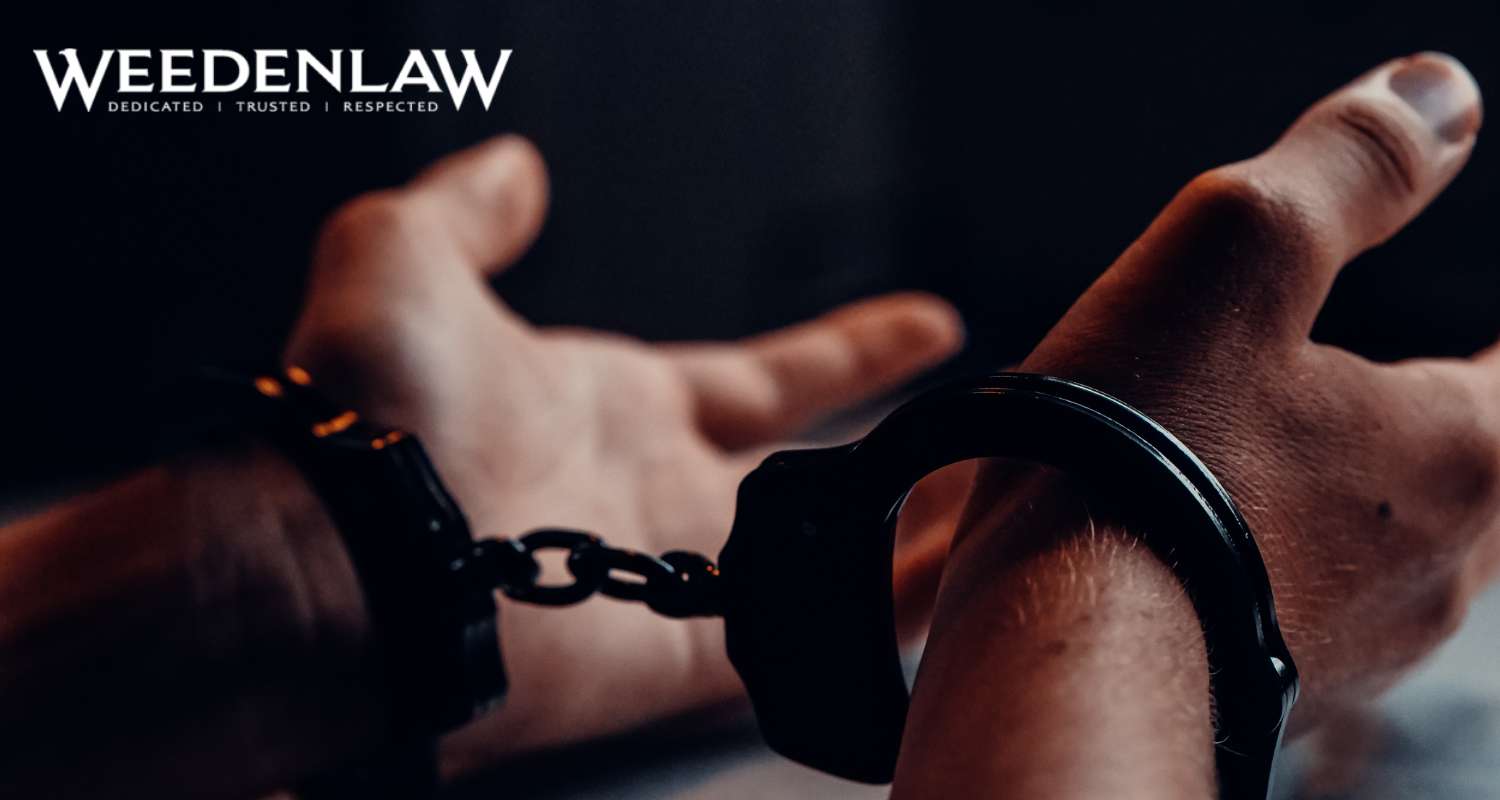
How To Beat a Trespassing Charge in Colorado
To beat a trespassing charge in Colorado, several possible defenses could apply, depending on the circumstances. One common defense against criminal trespassing is demonstrating a lack of intent or knowledge, meaning the accused did not knowingly trespass or was unaware they were on private property. Another defense could involve consent from the property owner, where the defendant had permission to be on the property at the time of the incident. Additionally, cases of mistaken identity or wrongful accusation can arise where the defendant was not the individual involved or has been falsely accused.
Denver criminal defense attorney Jeff Weeden can help craft a tailored defense by analyzing the specifics of your criminal trespassing case, gathering evidence, and questioning any inconsistencies in the prosecution’s claims. His goal is to present a compelling defense strategy that challenges the trespassing charges and works toward a favorable outcome.
Why You Need an Experienced Denver Criminal Trespass Attorney
Criminal trespass cases can be more complicated than they initially appear, involving detailed legal definitions, property laws, and intent. Without proper legal representation, you risk facing severe penalties, including fines, jail time, and a permanent criminal record in Colorado.
With this in mind, working with an experienced Denver criminal trespass attorney like Jeff Weeden is of the utmost importance. Jeff’s in-depth knowledge of Colorado criminal law and his track record of defending clients against trespassing charges make him well-equipped to navigate the legal process on your behalf.
Handling a trespass charge without professional legal guidance can leave you vulnerable to conviction and long-term consequences. The best thing you can do for yourself in these situations is equip the help of a legal team like WeedenLaw as soon as possible.
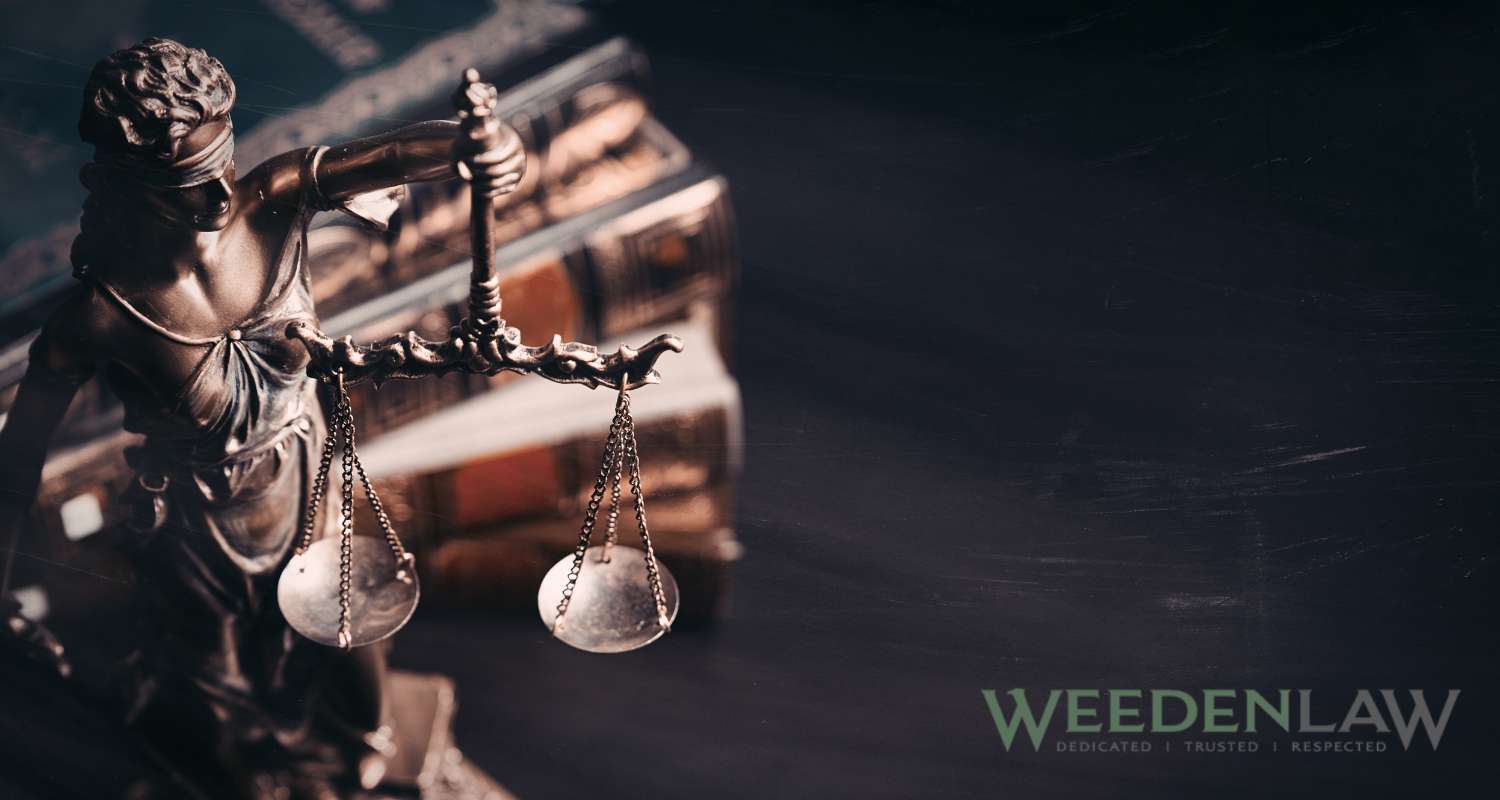
Charged With Criminal Trespassing in Colorado? Call Denver Criminal Defense Attorney Jeff Weeden ASAP
If you’ve been charged with criminal trespassing in Colorado, having a criminal defense attorney on your side is imperative to protect your rights and fight for the best possible outcome. Remember, a criminal trespassing conviction can lead to serious consequences, including fines, jail time, and a permanent criminal record, and the key to avoiding the harshest of these consequences is to obtain skilled legal representation right away.
Denver, Colorado criminal defense lawyer Jeff Weeden understands the ins and outs of Colorado trespass laws and is committed to providing strong, strategic defense for clients in the Denver area and surrounding counties, including Douglas County, Denver County, Arapahoe County, Jefferson County, and Adams County.
To speak to an experienced criminal defense attorney at WeedenLaw regarding your Denver trespassing case, call our law office today at (720) 307-4330 or reach out online to schedule a free consultation and get the defense you deserve.












